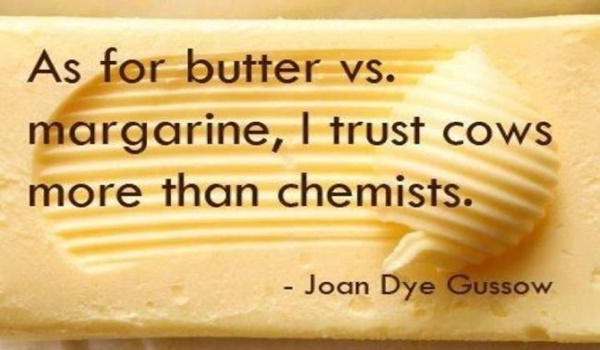Nowadays, people are much more informed about the impact of their diet on health, so they try to make health-conscious decisions when it comes to the foods they consume.
Apart from different regimes and diets, many also carefully pick every single item they buy, and the dilemma of whether to purchase margarine or butter seems to be inevitable here.
Well, this article offers the answers you need. Margarine is a condiment commonly used for baking and cooking, and some also use it as a spread.
In 1869, as a result of the shortage of butter in France, margarine was created by French chemist Hippolyte Mège-Mouriès. It was then made using beef tallow and skimmed milk.
These days, most margarine types are made of vegetable oils, which have been are chemically altered through processes such as hydrogenation or interesterification to get a butter-like texture.
Also, they may contain food additives like emulsifiers and coloring agents.
Now, let’s review the differences between margarine and butter.
Butter is a dairy product, made by churning milk, while margarine is produced from chemically- altered vegetable oil. Butter is primarily saturated fat, while margarine is almost completely made of polyunsaturated fatty acids.
Butter is rich in nutrients like K2, and several fatty acids, such as butyrate, omega-3 fatty acids, and conjugated linoleic acid. It is also abundant in important trace minerals, such as manganese, chromium, zinc, copper, and selenium.
Margarine is lower in these essential nutrients, but it contains small amounts of sodium, omega-6 fatty acids, and fat-soluble vitamins like vitamin A and vitamin E.
Polyunsaturated fatty acids in margarine are considered to be healthy for the heart and to lower the risk of coronary heart disease. Additionally, margarine is also high in stanols and sterols, which lower bad LDL cholesterol levels.
It is also a good alternative to butter for people with specific dietary restrictions, including vegans, as it is made from vegetable oils.
Yet, note that it is also heavily processed, and studies have shown that many processed foods increase the risk of cancer, heart disease, and even death.
As margarine is rich in omega-6 fatty acids, you should remember that only the right ratio of these fats with omega-3 can protect against inflammation and disease. Omega-6 fatty acids may cause problems in high quantities when they are not balanced with omega 3 fatty acids.
To solidify the oils and get the needed texture, many margarine producers subject the product to hydrogenation, which can lead to the formation of trans fatty acids, which can contribute to many chronic conditions, Therefore, some manufacturers have turned to interesterification, which is a much healthier variant.
Furthermore, the high-temperature industrial processing of vegetable oils causes free radicals and other toxic breakdown products, which might lead to health problems such as heart disease and cancer.
The added synthetic vitamins can also have an opposite and even harmful effects in comparison to the natural nutrients in butter.
On the other hand, butter is considered highly beneficial in the case of heart disease, arthritis, digestion issues, osteoarthritis, thyroid disorders, asthma, and fertility issues.
Many use margarine if they avoid or limit their consumption of dairy or animal products. It is also rich in polyunsaturated fats, which are considered to be healthier, but some margarine types contain trans fats too.
Butter is less processed than it and contains more nutrients. The main reason why most people prefer it over margarine is that it is a natural food, rich in immune-boosting vitamins, Lauric Acid, healthy cholesterol, fatty acids, and antioxidants.
And everyone will agree that good-quality butter tastes so rich and delicious!
Yet, if you like margarine, this doesn’t mean that you should stop consuming it. Both margarine and butter have their pros and cons, so your best bet might be to use both in moderation.
If you purchase margarine, make sure you choose a type free of hydrogenated fats. When buying butter, choose a grass-fed one for the optimal nutritional value.
The best option is raw butter, from grass-fed cows, preferably organic. Next is pasteurized butter from grass-fed cows, followed by regular pasteurized butter from supermarkets.


